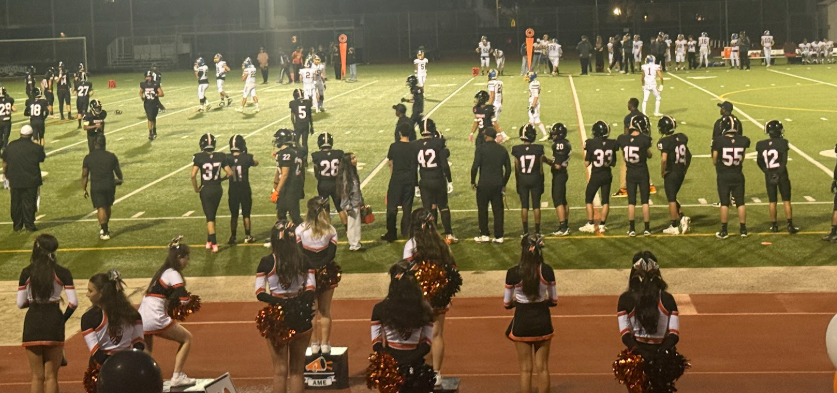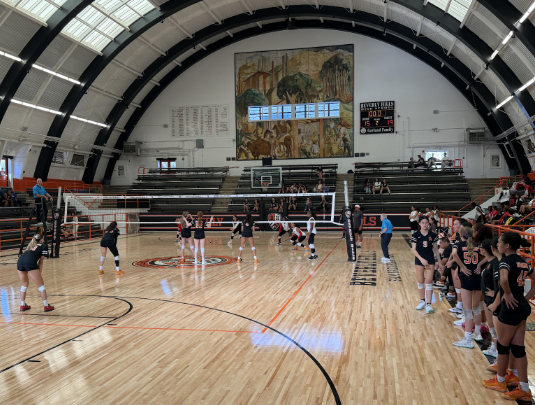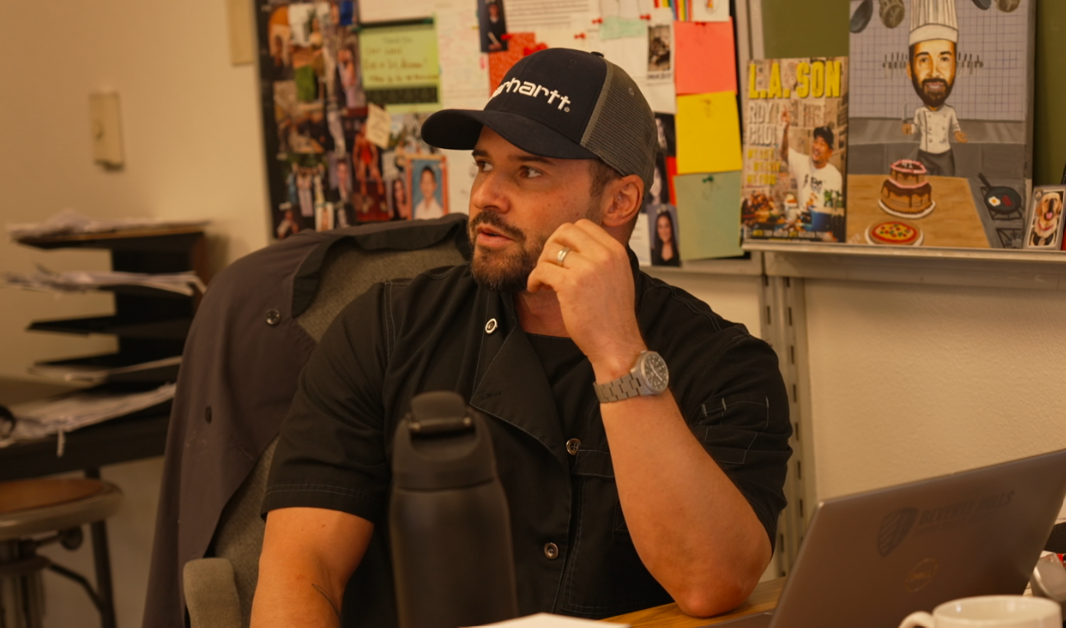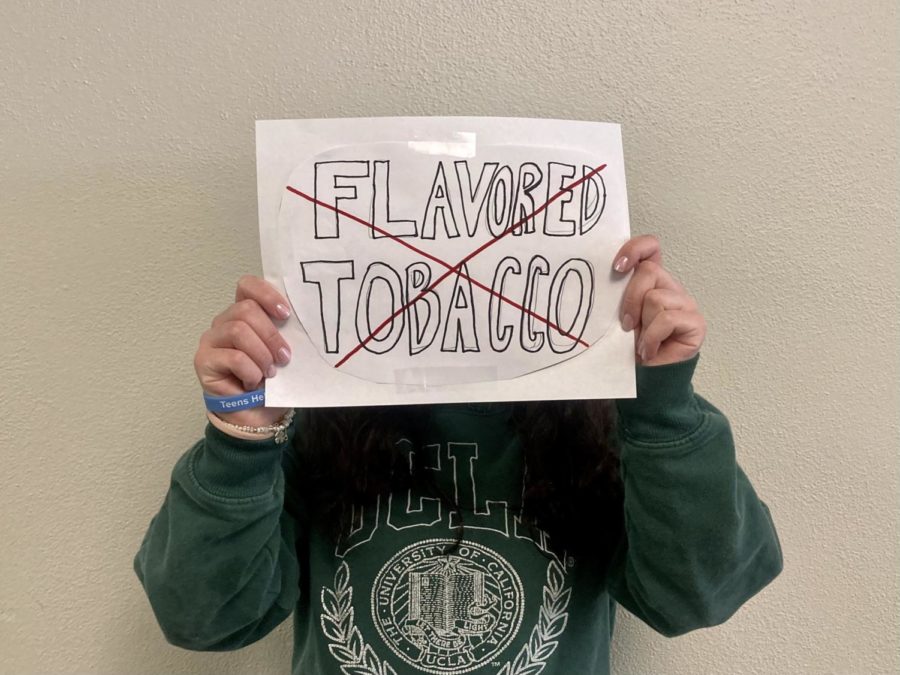Catherine Gagulashvili copy editor
Ava Seccuro staff writer
Emma Newman cub writer
ANAHEIM, CALIFORNIA – Clad in navy blue corduroy jackets, the California chapter members of the Future Farmers of America (FFA) are hard to miss as they walk up and down the streets of Anaheim, California. When they aren’t enjoying the California sun or the nearby Disneyland, they are gathered in the Anaheim Convention Center to participate in competitions and activities focused on agriculture. And, despite the plethora of questions they get asked on the street, no, not all of them are going to become farmers.
The FFA is an organization focused primarily on the betterment and the preparing of students by immersing them in agricultural education. Some students, exposed to agricultural ways of life from a young age, were drawn to the FFA as a means of furthering their passions. Others join to better develop their leadership and public speaking abilities. Regardless of the reasons individuals join, they have all experienced the stereotyping that has become associated with telling people what the FFA stands for.
The inside perspective
While it is a preconceived notion that California is a liberal, elitist type of state, what many are unaware of is the importance of agribusiness. Now, it is not even a growing trend, it has already held a position of utmost importance in our economy and society; however, it simply goes unnoticed. This perpetuates an attitude among California’s coastal elites that people involved in agriculture are culturally inferior.
“A lot of people don’t know what the [FFA] is. When we were at Disneyland yesterday, a bunch of people would be like, ‘What’s FFA stand for?’ and when you tell them ‘It’s Future Farmers of America,’ they’re like ‘Oh, so you’re all going to be farmers,’ and we say, ‘No, not necessarily,’ because when you look at agricultural-related jobs, there’s so many out there because of how important agriculture is to the world. You can go into plant science, you could be a vet, you could be a farmer. You could be anything,” high school student Kendall Boone said.
More so than the students involved in the FFA, the members of this convention have faced many stereotypes throughout their careers as farmers. One of these stereotypes is that the farmers are polluting the environment.
“Farming and agriculture is highly undervalued and people often take it for granted. However, I feel that agricultural techniques are flawed, as pesticides are overused and kill large numbers of bees, while too much forested land is cut down when farmers could easily use more sustainable land. Nevertheless, agriculture should never be taken for granted.” Beverly Hills High School junior Matthew Park said.
FFA Fowler chapter adviser Paul Magill believes that these assumptions are incorrect, as the regulations for farming in California differ from those elsewhere.
“People come in and they said, ‘Your farmers are poisoning the world’ [but] California is probably the highest regulated for agricultural chemicals and agricultural stuff,” Magill said. “There is stuff that we cannot do here that other states and Mexico and other places can get away with. We can’t do that. We can’t poison the environment.”
Other people sometimes make crude remarks about farmers, failing to recognize the work they do for the nation.
“The people that aren’t agriculturally related, they normally tend to call us pigs or hillbillies, and sometimes they make jokes about it,” FFA member Richard Powers said.
Despite some of the harassment that FFA members like Powers have received, he claims that many of them are generally happier than their peers who are involved in other activities.
“We’re a lot happier than a lot of people. And I think because we got past the boring part… and nobody here is here to bully anybody. We’re here to have fun and have a good time”
Some stereotypes involve the appearances of farmers, limiting the actual diversity and representation within those in the agriculture industry.
“When [people] think about farmers, they think about someone with overalls and a pitchfork and a van,” farmer and recruiter Shannon Douglass said.
Douglass has also witnessed a lot of stereotyping over the fact that she is a young woman. Despite the fact that as of 2012, women make up 30 percent of the agricultural workforce, she still faces stereotyping on a regular basis.
“Those two things alone really surprise people,” Douglass said. “They don’t think that I can be a farmer if I’m a gal or if I might ever wear a dress that [I] couldn’t be a farmer.”
Douglass wishes that people would be more aware of the fact that not all farmers look the same.
“You should be open-minded…that there all blocks of life doing so many different things nowadays,” Douglass said. “I think talking about the work that they do becomes really important so people realize …that there’s more diversity in this industry than some people might think.”
Another common stereotype is that farming is old-fashioned. However, farming is advancing at a fast rate.
“It’s really regulated and really precise,” Magill said. “There’s a lot more computer work. And kids are good about that. These young kids are coming in changing companies because they can do it on the computer and they can do it to where we develop cows now … produce more milk, healthier milk. We’re not sticking them full of hormones and steroids for less money…We’ve done it with genetics and treating and animal care.”
Some of the newest technologies include sensors, robots, temperature and moisture sensors, aerial images and GPS technology. According to Magill, these advancement could potentially lead to humans becoming more obsolete in the agricultural workforce.
“The population is going to keep on increasing. And our technology is just getting better and better. So at some point, like we’ll have tractors to do all of our land work. We will have people that are just fixing the tractors and that’s it …. So we don’t have a lot of labor work to do,” Magill said.
Many people also think that farmers are not educated. However, the education rate among farmers is rising. This may be because of the job options that college educated farmers have.
“There’s a lot of job opportunity in agriculture, particularly in California,” Magill said. “We have tremendous jobs. If you look nationwide, there are two jobs for every graduate with a degree in agriculture.”
Farming is also more than just an industry of planting crops and growing animals, which some people are unaware of.
“Kids are learning leadership skills, communication skills and how to market not only agricultural products but themselves,” Magill said. “Agriculture helps with a lot of stuff: We have kids here who aren’t going to do farming, but they can do agricultural journalism, they can do photography. There’s so much in agriculture if a kid has an inkling to do it.”
The Beverly perspective
Some members of more elite communities, like Beverly Hills High School sophomore Alya Mehrtash, think that farmers are not acknowledged enough for their achievements.
“Unfortunately, I don’t think the people in the agricultural business are given enough credit for the work they do and for their contributions to society,” Mehrtash said.
Beverly Hills High School junior Matthew Park additionally debunks the stereotype that elitist communities are oblivious to the successes and the prevalence of agriculture, especially in California. Because California is often portrayed in the media as an increasingly urban state, Park claims that many are unaware of how much California contributes to the economy.
“[Farming is] more prominent [in California] than the more densely populated states in the East Coast, but it is easy to forget that California is an agricultural state,” Park said. “When people think of California, they usually think about big cities like Los Angeles, major ports like San Francisco, or national parks like Yosemite.”

Agribusiness continues to involve many professions and roles in order to sustain the input that they contribute to the community. Parent at Beverly Hills High School and investment banker, specializing in agriculture, Michael Seccuro, attests to the intricacies of agriculture that elitists often ignore.
“There are preconceptions that people in agriculture are either less sophisticated or less intelligent. Farming can be quite complex,” Seccuro said. “Also, people think that they don’t care about the environment. [That’s] not true. They have to. If they want to sustain their lifeblood, they have to care about climate change [and] water use.”
According to Magill, farming is an industry that has more potential than any other.
“We can blow all of these other businesses off water because we have millionaires and billionaires in agriculture as well as some of these elitists. But the elitists have to eat and drink and sustain the environment, so they have to communicate with us,” Magill said.
To Guzman, this is why the business will always exist.
“[Farming is] actually really important because they’re the main factor of what brings everybody together. It’s the future. It’s the past and it’s the present. So it’s always going to be important,” Guzman said. “It’s never going to be something that’s going to die down.”

































![Sophomores Jurnee Burrell-Williams and Bao Dang take cover during the lockdown (staged). “We both kind of didn’t know [what to think],” Dang said. “They usually send drill messages before.”](https://beverlyhighlights.com/wp-content/uploads/2023/02/E8D27FA0-AB24-4A26-9745-F7EEFF48FA93-900x736.jpeg)




